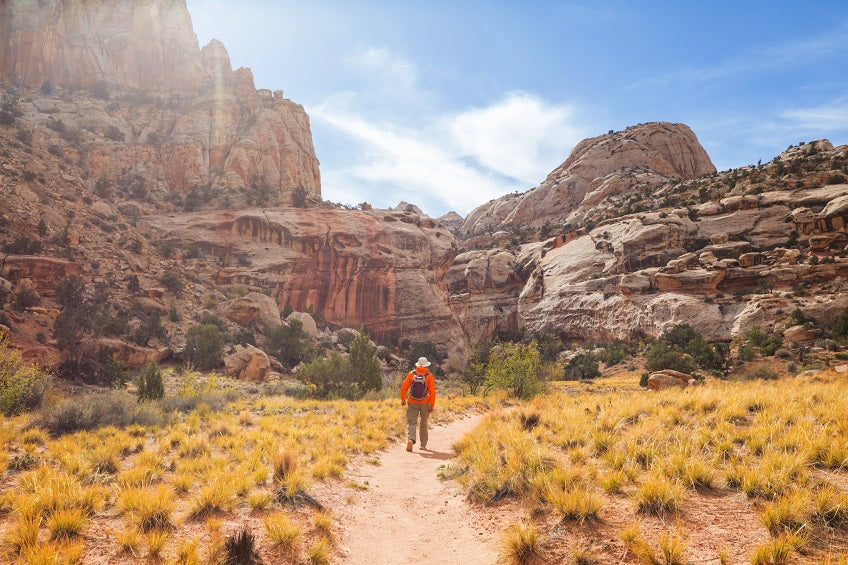Approximately 2,000 people go missing while hiking each year. Since this is your best chance of surviving and being found, the first 72 hours after going missing are very important. It will get dark soon, there's a chance you'll have terrible weather, and you'll feel scared. When backpacking, even the most experienced and well-equipped hikers can get lost, so it's imperative to always be prepared, even if you're just going on a quick trip in a familiar nation.
Constantly Hydrate
Having lots of water on hand is one of the most crucial safety pieces of advice when planning a trek. It doesn't matter what time of year or season you hike; you should always have enough water with you. In addition, you want to make sure you drink plenty of water while hiking instead of only ceasing when you become physically dehydrated. Make sure you stay hydrated throughout the day because dehydration can have detrimental effects right away.
Appropriate Food for the Trek
For your hike, you undoubtedly brought snacks and food, but did you bring the correct food? It is crucial to always have high-calorie, easily packed food that is resilient to crushing. Calories play the role of energy provider, and you will need it to survive in the event that you become lost in the woods. When stress levels are high, a quality high-calorie bar with 3,600 calories will provide you with the energy and nutrition you require for the entire day. Additionally, protein can assist prevent muscle waste if you do lose weight for an extended length of time.
Proper Hiking Gear for the Trail
You should always wear appropriate footwear in addition to clothing appropriate for the weather. Investing in high-quality closed-toe hiking shoes with adequate cushioning and traction is one of our main safety recommendations. In this manner, problems like rolling your ankles or sore feet can be avoided. Additionally, wool or synthetic hiking socks that drain away moisture are what you want to wear. Cotton socks retain moisture, which leads to sweaty feet and blisters.
Pack a First Aid Kit
It's always a good idea to have an emergency first aid package with you, even if you're just going on a day hike. Being prepared for any potential injuries is crucial, whether it's a minor bug bite or a more severe cut or scrape. Stay vigilant and ready to handle any situation that may arise. Remember to bring an EpiPen or any necessary medication to manage potential allergic reactions to plants, insects, or other substances you might encounter. Also, don't forget to apply sunscreen regularly to protect yourself from sunburns and heat-related illnesses.
Keep Track of Time
Make sure you have allowed enough time before starting your journey so that you can return to your campground or exit the route by nightfall. It is not what you want to be stranded on a trail after midnight. If you want to go on a hike that lasts all day, you must start early in the morning in order to finish by late afternoon or evening.
With these additional hiking safety tips in hand, you can start deciding which paths to attempt on your next outing. Make Shield-Safety your go-to source for safe hiking.
